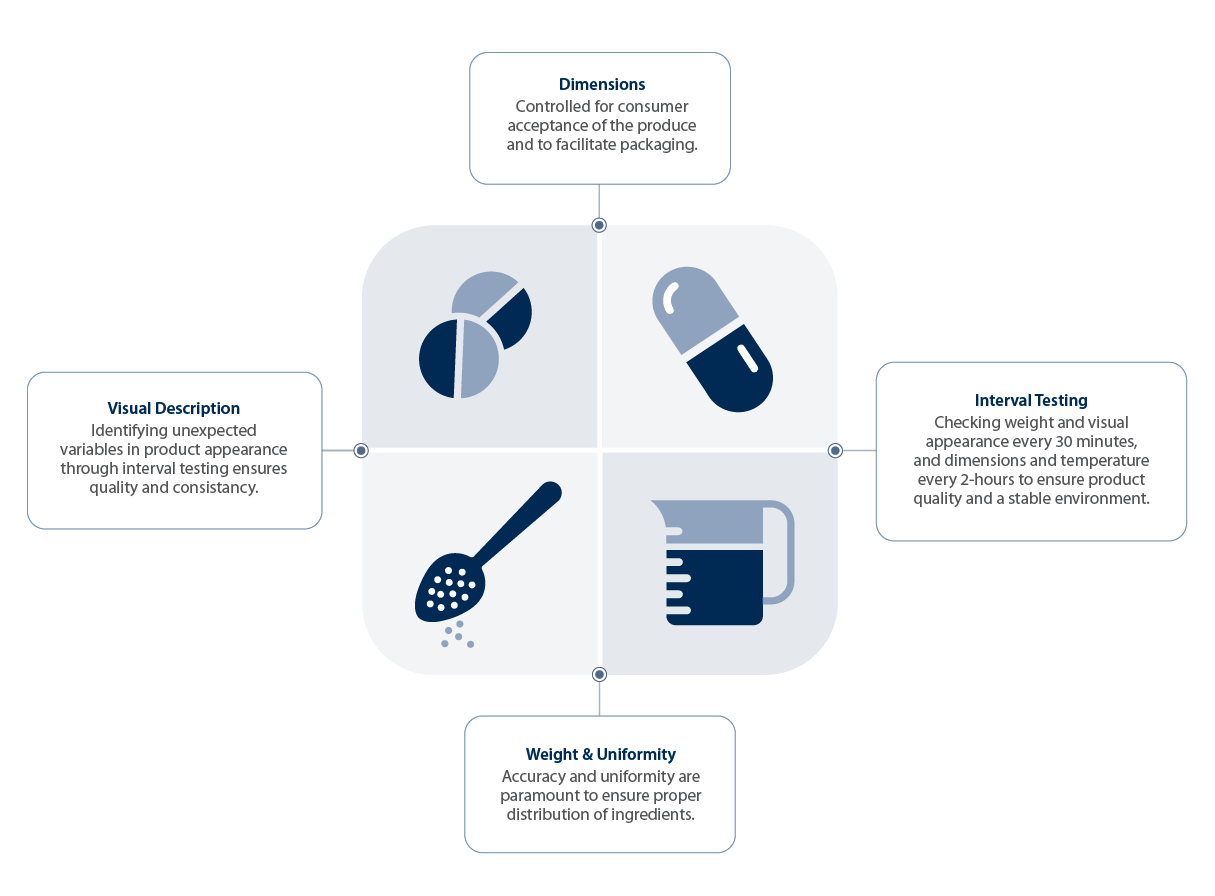What Are We Testing?
Quality Testing - Assuring Purity of Metagenics Products
Active ingredients are an expectation in natural medicines, yet impurities should not be present. We understand both Practitioners and patients need transparency around testing which is why we want to show you impurities that are tested within our product range, along with why we test them and what you need to know about them.
Elemental Impurities
Why test? Metagenics tests for the presence of heavy metals (elemental impurities) such as arsenic, lead, cadmium and mercury which might be detected in certain ingredients. These metals are a natural part of the earth's crust and can be found in most soils around the world, and therefore has potential to be within plants and herbs. Testing for heavy metals is performed using inductively coupled with plasma mass spectrometry which allows detection for nonorganic materials at part-per billion concentrations.*
What are we testing?Microbes
Why test? Micro testing is completed to ensure adherence to the TGA's Microbiological Standards for Medicines Order (TGO 100). This is to ensure finished products and raw materials are not contaminated by pathogens and are manufactured in a sanitary environment.
What are we testing?
Physical Attributes
We do a number of checks on the physical attributes of all capsules, tablets, liquids and powders - with some checks occurring every 30 minutes! Metagenics is a premium product range, and we won't settle for anything less than perfect.


